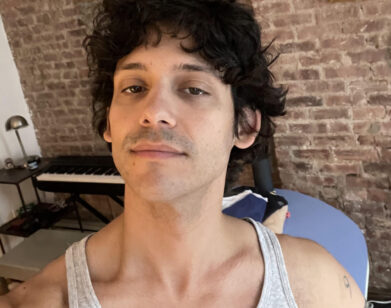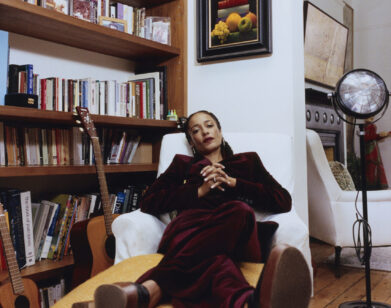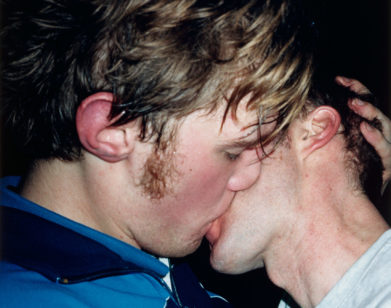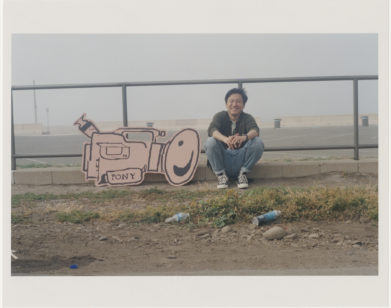nice to meet you
Bathe Is Making Music You Can Live In
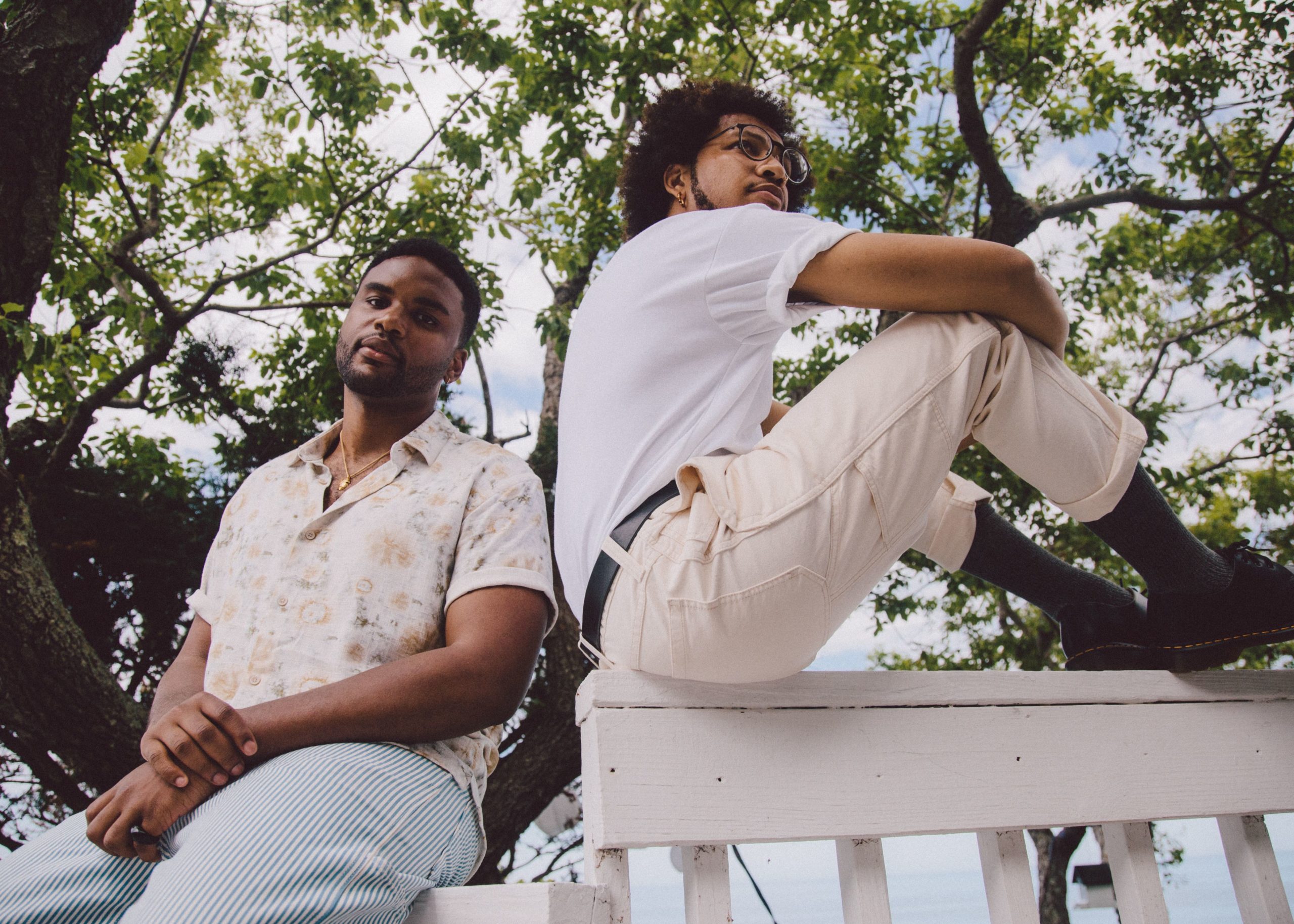
Photo by Nathan Bajar.
This is Nice to Meet You, for all your need-to-know information on the need-to-get-to-know new voices in pop culture. Think of it as a blind date, if the date were cooler than anyone you’ll ever go out with. Allow us to break the ice— we promise you’ll fall in love.
Last week, the Brooklyn-based duo Bathe released “Bolero,” the third single off of their upcoming sophomore album Bicoastal. The single—a liquid staycation that weaves soft Cuban Spanish with dreamy reverb and recordings from the L train subway platform—perfectly articulates ephemerality of “home,” an idea that sits at the core of Bicoastal.
For Bathe—Corey Smith-West and Devin Hobdy—nostalgia is an essential ingredient of music making. The pair grew up on a diet of Beach House and Blood Orange, and have metabolized these ambient, surf-rock influences into a velvety, shimmering sonic universe—the kind that can conjure longing for the kind of sepia-toned summer days you’ve never experienced—that unfurls over the album’s nine tracks. As the heat wanes, we’re playing “Bolero” on repeat, and biding our time until the rest of Bicoastal, out October 15th, offers us a much needed dose of sunshine. Below, Smith-West and Hobdy tells us about the communal journey to Bicoastal, the album’s Caribbean resonance, and the glories of nutritional yeast.
———
ON THE INSPIRATION FOR BICOASTAL:
DEVIN HOBDY: It was born out of the stagnancy that you feel in your mid-twenties. One way to process that feeling is by deciding that it’s your location that’s keeping you from achieving whatever it is that you’re after. Corey and I had both been in Brooklyn, surrounded by concrete for so long. But all of our music is obviously very tied to the water, and we found ourselves fantasizing like, “What would it be like to just pick up and leave?” When the pandemic started, a lot of the lyrics took on new meaning, because we just wanted to escape the four walls of our bedrooms. So, the end of the album is sort of like a resolution to that feeling. It’s about realizing that home is wherever you feel the most whole.
ON “BOLERO”:
HOBDY: “Bolero” is very personal to me. It’s about the unmoored quality of African Americanness. My dad’s family is from the South and immigrated to the northern U.S. There’s a distinctly Black American identity there. But my mom’s family is from Nevis and Cuba—uniquely Black in their own ways. “Bolero” was born out of the tension between those different cultural perspectives.
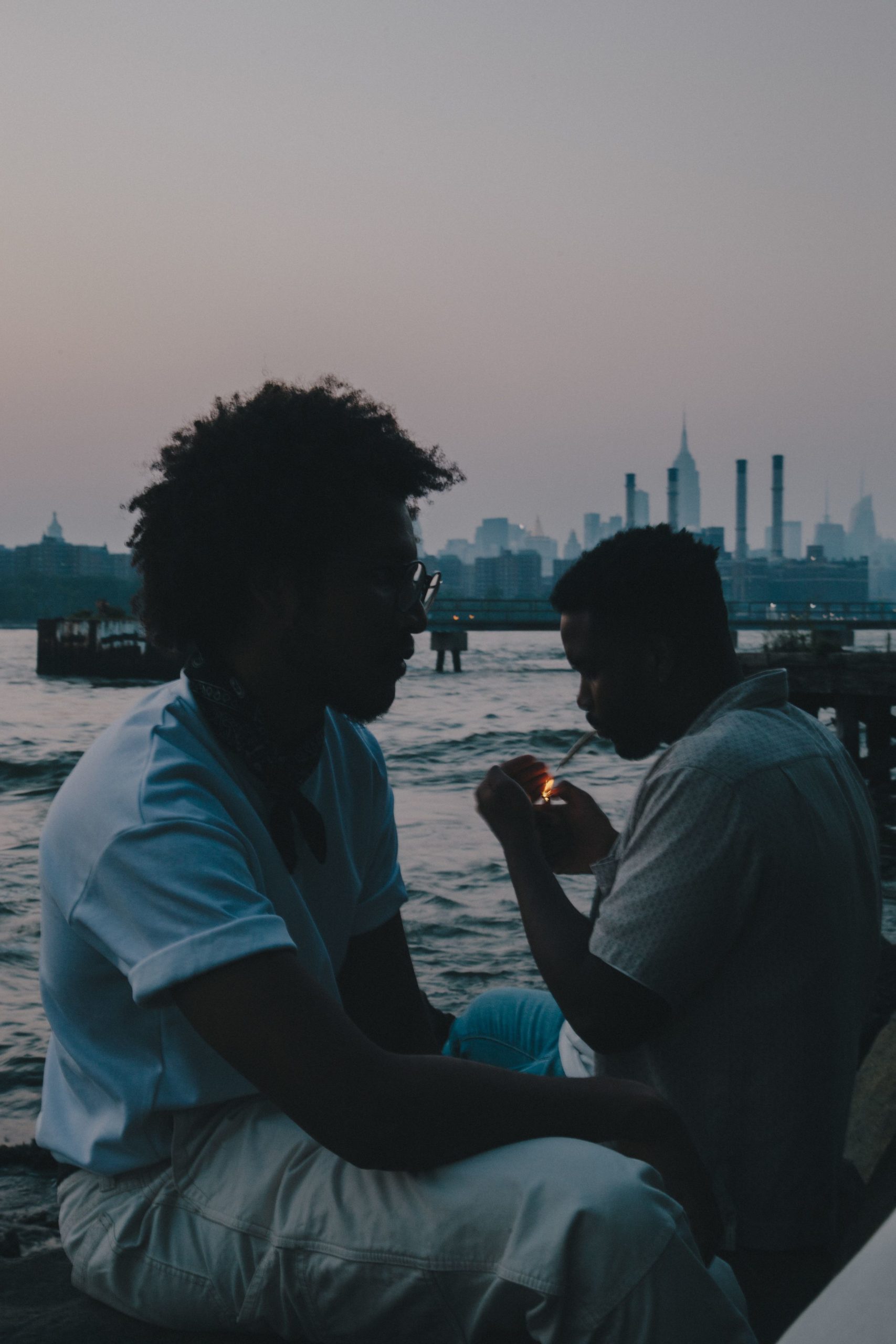
Photo by Nathan Bajar.
ON THE ALBUM’S TITLE:
COREY SMITH-WEST: Dev and I realized that a lot of people who we run with aspire to be bicoastal—but it’s also a very romanticized state of being. Having the freedom to travel isn’t always the salve you think it is. The feeling of being out of place doesn’t go away, no matter how much you shift locations. So for us this title embodies both the optimism and the reality of that dream.
ON HOW THEY MET:
HOBDY: We went to college together, and I would see this guy with these long dreads carrying his bass around. I was like, “That guy’s dope, I wish I could be his friend.” Then one day, I was tripping with some friends and we were all having a very bad time. Corey appeared out of nowhere like, “I got a song for y’all.” He had us all on cloud nine, and I was like, “All right, I need this guy in my life.”
SMITH-WEST: We ended up living together, and after that thing with the mushrooms, we started working together, first in a group with our friend Ivy Sole called Indigold. We even had a little folk duo. We didn’t really know what direction we were going to go.
ON THE ELEMENT OF SURPRISE:
HOBDY: This morning I woke up and went to a cafe in Bed-Stuy. I was reading belle hooks and eating an Acai bowl when Corey pulled up. I thought I was going to have to fight him.
SMITH-WEST: I definitely spent a large percentage of my day stalking Dev. I love sneaking up on him in public. I just crept up behind him and reached out to take his Acai bowl. If there’s one thing you should know about Devin, it’s that you can’t mess with his Acai bowl.
HOBDY: I was like, “Dude, this is not a game.” You sink $11 into that thing, so every spoonful counts.
ON THEIR INFLUENCES:
SMITH-WEST: People say that the music that you listen to in high school stays with you for the rest of your life. For me it was Girls, Beach House, Toro y Moi’s first album Causer of This, Blood Orange’s first album. I am still very drawn to super surf-y, slow wave stuff. Dev was the only person in the world who was even remotely drawn to that sound.
HOBDY: I went to an arts school in Queens and studied musical theater and classical voice. Even though my mom was a jazz musician, my introduction to the vocal arts was through show tunes and arias—I didn’t learn to sing R&B until I joined an acapella group in college. I always loved the soul tradition and the larger Black musical tradition, but I also felt like an outsider to it. So it was fun to build that sound into the album—it has a great left-of-center R&B though-line.
ON GENRE:
SMITH-WEST: I’m extremely Jamaican. I grew up listening to dance hall and rocksteady. I thought that all music was reverb and taped delay. So on this album, you hear that guitar swimming in reverb, or that super warm and analog snare, that’s the sound of my youth. Caribbean music is much more genre-bending than it’s given credit for. You’ve got groups covering American soul classics. You’ve got the roots of what later becomes hip-hop. The genre tags that have always haunted American artists are just not as tightly wound over there. We picked up on that free-associating spirit.
ON THEIR PLAYLISTS:
HOBDY: Channel Orange is inescapable. Unfortunately Kaleidoscope Love, by Miguel, is also inescapable.
SMITH-WEST: I love albums that have a really tight sonic identity, like a theme that runs through all the songs. When you see those albums performed live, you become a part of their world. Because The Internet by Childish Gambino was huge for me. It felt like this world that you could live in. Albums like Voodoo by D’Angelo, A Seat at the Table by Solange, Blonde by Frank Ocean all feel like they expand past the music in the same way that a movie can be this cultural phenomenon beyond the moment of watching it. That’s always been the goal for us, beyond just making a collection of nine songs that are catchy.

Photo by Nathan Bajar.
ON SUCCESS:
SMITH-WEST: The only word for it is community. Like, 1000%. We recently played a show with Triathlon, who we bumped into on the street when we first moved to Brooklyn. At the time, we were just completely awed to even be meeting them in person. We sent them the demo from our first project super early. We have had so many of those serendipitous encounters recently, because being in Brooklyn as a young person of color creating music is such a tight knit community right now. Sometimes it manifests as great shows, other times it manifests as great conversations until 3:00 am, but everyone is contributing to each other’s progress. I think that’s really what it comes down to—we’re surrounded by a bunch of people with great ideas who make great art, and we’re just one result of that.
HOBDY: We started making music together when we were like 20, and our notions of what it would take to become successful musicians were wildly distorted. We thought that all we needed was one hit song, and then the rest of our lives would change. When we put out our single “Sure Shot,” that feeling was just ridiculous. Those were huge numbers for us. I was like, “Can I quit my job?” And then we realized, that’s not how this works. We’ve really just been learning how to write together since then, and that’s what has fueled all our incremental progress. It’s been a really beautiful process.

Photo by Nathan Bajar.
ON THE BEDSIDE TABLE:
SMITH-WEST: An Ivy Sole weed rolling tray, and the book I’m reading right now, called The Hook Factory, which is a history of pop music.
HOBDY: I just have a candle.
ON THE BOOKSHELF:
HOBDY: Like half old Western philosophy, and half Black feminist theory.
SMITH-WEST: A lot of books on making schedules, workflow optimization, and poetry. Like that’s pretty much my three categories.
ON THE SPICE RACK:
HOBDY: You got to have nutritional yeast, you got the pink salt, and some chili powder.
SMITH-WEST: We’re both super into nutritional yeast.

